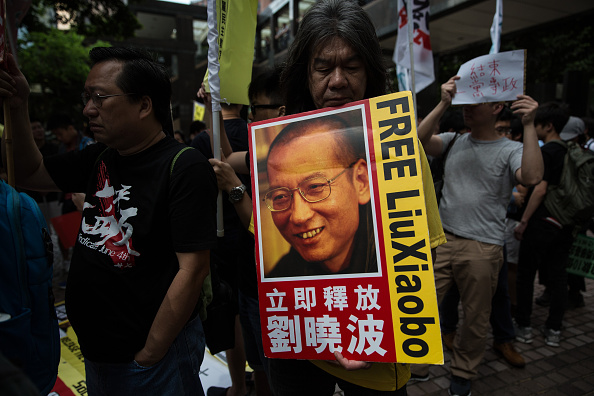The Canadian embassy in China says comments were unfairly disabled on its post about Chinese human rights advocate, and Nobel Peace Prize winner, Liu Xiaobo.

The statement, which was posted to Chinese micro-blogging site Weibo, does not say Liu’s name or show his picture, but instead talks about his accomplishments, including contributing to Charter 08, a manifesto written in 2008 that called on the Chinese government to abandon its one-party system and adopt better human rights and democracy in the country.

Liu was first arrested for protesting when he returned to China during the Tiananmen protests in 1989. He was awarded the 2010 Nobel Peace Prize for his work on human rights while he was again imprisoned. He died in 2017 of liver cancer.
“This month, we commemorate the 70th anniversary of the birth of the Universal Declaration of Human Rights. But this is not the only important human rights document issued on December 10. In fact, there is another equally important document, this year is the tenth anniversary of its release. It was drafted by a famous Chinese writer who later won the Nobel Prize,” the post by the Canadian Embassy reads.

It was also accompanied by pictures of Czech leader Václav Havel, who was the first president of the Czech Republic and wrote its Charter 77 – named as one of the inspirations for Liu’s Charter 08.
Weibo has frequently censored posts apparently at the request of the Chinese government. It’s not clear why comments were disabled on Weibo.
The embassy said on Twitter that over 1,300 people had commented before comments were disabled, suggesting that it was a “violation of article 35 (freedom of speech) of China’s own Constitution.”

Get daily National news
(Article 35 of China’s Constitution states: “Citizens of the People’s Republic of China enjoy freedom of speech, of the press, of assembly, of association, of procession and of demonstration.”)
The embassy has not replied to an email request for comment from Global News.
The talk about human rights on Twitter comes amid rising political tensions between China and Canada.
China has cited human rights grounds as it called for the release of a Chinese businesswoman arrested in Vancouver.
Meng Wanzhou was arrested Dec. 1 and faces extradition to the U.S. to face fraud charges in relation to misleading investors about sanctions on Iran.
She was released on bail and remains in Vancouver to face an extradition hearing.
Chinese officials have said it’s “inhumane” to arrest her because she isn’t facing charges in Canada.
For their part, Canadian officials said they are following the rule of law in the extradition case.
Ten days after Meng was arrested, Chinese officials detained two Canadians in China; former diplomat Michael Kovrig in Beijing and businessman Michael Spavor in the town of Dandong on the North Korean border. The Chinese government says they are being investigated for “endangering state security.”
A third Canadian, who has not been identified, has also been detained, but officials at Global Affairs said there is no known connection between the cases.
Canadian officials say there is no explicit link between Meng’s arrest and the Canadians’ detention. But former diplomats and policy experts have said the detentions are a form of “tit-for-tat” reprisal by China.
WATCH: Canadians should ‘exercise high degree of caution in China’: Freeland

It’s not the first time the Canadian government has commemorated Liu. On the one-year anniversary of his death, Freeland released a statement saying Canadians stood with his widow, Liu Xia.
“Today marks one year since the tragic death of Chinese human rights advocate Liu Xiaobo, after he was imprisoned on baseless charges and denied the medical care he requested,” the statement released July 13, 2018, read.
“Canadians stand with Ms. Liu as we reflect on the enduring legacy of Liu Xiaobo and his relentless pursuit of freedom and human rights in China.
“Canadians believe in democratic and human rights, and we will always stand up for those who — in the face of oppression — seek a more just and equal world. Freedom of expression is a fundamental human right, and we cannot let these brave voices be silenced.”
Freeland also sparked a spat with Saudi Arabia over a tweet when she called for the release of a Saudi human rights activist and blogger earlier this year.
WATCH: The first 24 hours of the Saudi-Canada tweet feud left Canadians reeling














Comments